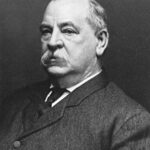The Economic Crisis Behind the Decision
President Cleveland faced a severe financial crisis when he took office in 1893. The Sherman Silver Purchase Act of 1890 required the government to purchase silver monthly. This policy was rapidly depleting federal gold reserves. ⚠️ The nation’s gold supply had fallen dangerously low by summer 1893.
Cleveland’s Decisive Leadership
Cleveland recognized that the Sherman Silver Purchase Act threatened America’s monetary stability. He called a special congressional session in August 1893. The president personally lobbied reluctant Democrats to support repeal. 💰 His passionate speeches emphasized the urgent need to preserve the gold standard.
Congressional Battle and Victory
The repeal fight split Cleveland’s own Democratic Party down regional lines. Western Democrats strongly opposed ending silver purchases. Eastern Democrats and Republicans supported Cleveland’s position. 📊 After intense debate, Congress repealed the act on October 30, 1893. This decisive action demonstrated presidential leadership during economic turmoil.
Impact:
Immediate Economic Stabilization
The Sherman Silver Purchase Act repeal immediately halted the dangerous gold drain from federal reserves. Foreign investors regained confidence in American currency stability. 💰 Gold began flowing back into U.S. Treasury vaults within weeks. The dollar strengthened against international currencies, restoring America’s financial credibility abroad.
Long-term Monetary Policy Success
Cleveland’s decision established the gold standard as America’s monetary foundation for decades. This policy provided economic stability through the late 19th century. 📊 Historians praise Cleveland’s courage in opposing popular but economically dangerous silver policies. His leadership prevented potential currency collapse during the Panic of 1893.
Political Consequences and Historical Legacy
The repeal decision cost Cleveland support among Western Democrats and silver advocates. However, it earned him lasting recognition as a principled leader. 🌍 International markets viewed America as financially responsible following the repeal. Modern economists consider Cleveland’s monetary policy decisions among the most successful presidential interventions in financial crises.
